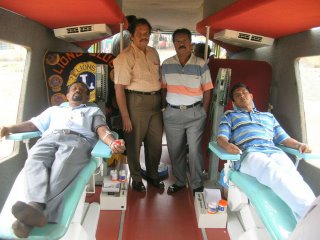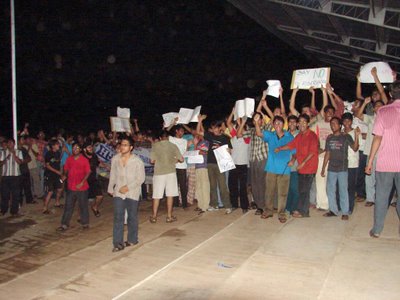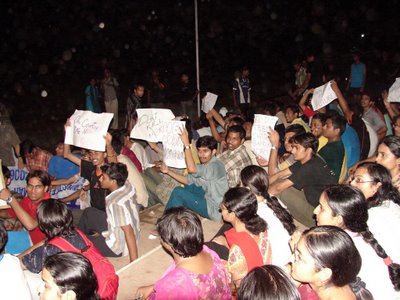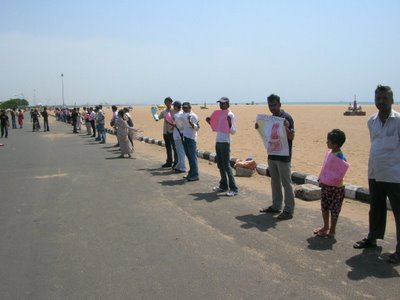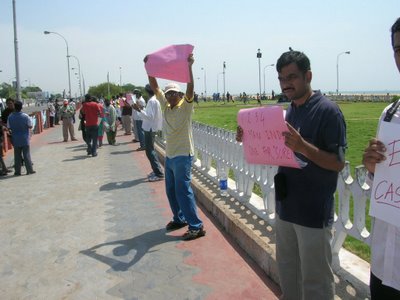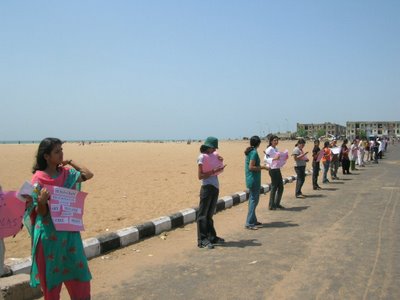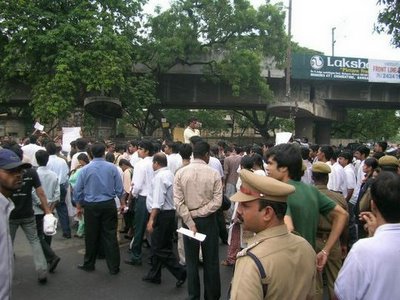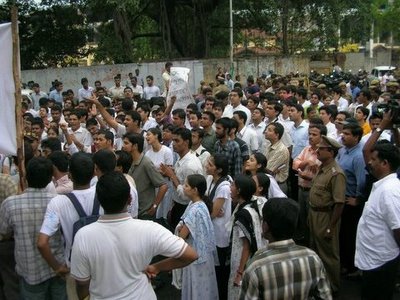Supreme Court stays quota law for OBCs
However, a Bench consisting of Justices Arijit Pasayat and Lokeshwar Singh Panta said the quota for the Scheduled Castes/Scheduled Tribes could be implemented.
The court passed the interim order on petitions challenging the constitutional validity of the Central Educational Institutions (Reservation in Admission) Act, 2006.
The court rejected the government argument that reservation was not anti-merit; and in the absence of caste data after 1931, there was no alternative to projecting the population proportion of socially and educationally backward classes and OBCs from the next best source — the latest available census of 1931.
Need for survey
Writing the order, Mr. Justice Pasayat said, "There is no dispute and, in fact, it was fairly accepted by Additional Solicitor General (ASG) Gopal Subramaniam that there is need for periodical identification of the backward citizens and for this purpose the need for a survey of the entire population on the basis of an acceptable mechanism. What may have been relevant in 1931 census may have some relevance, but it cannot be the determinative factor. Backwardness has to be based on objective factors whereas inadequacy has to factually exist."
The Bench said, "Though it is submitted that the number of seats available for the general category is not affected, that is really no answer to the broader issue. If there is possibility of increase in seats in the absence of reservation, it could have gone to the general category."
It said: "If the stand of the ASG is accepted that the exercise was not intended to be undertaken immediately and the increase would be staggered over a period of three years, it could not be explained as to why a firm data base could not be evolved first, so that the exercise could be undertaken thereafter. By increasing the number of seats for the purpose of reservation, unequals are treated as equals."
The concept of creamy layer could not prima facie be considered irrelevant, the Bench said: "It has also to be noted that nowhere else in the world do castes, classes or communities queue up for the sake of gaining backward status.
Stark reality
"Nowhere else in the world is there competition to assert backwardness and then to claim we are more backward than you. This truth was recognised as an unhappy and disturbing situation and such situation was noted by this court as a stark reality in Indra Sawhney's case [Mandal case]."
The court said it needed no reiteration that the creamy layer rule was a necessary bargain between the competing ends of caste-based reservation and the principle of secularism. It was part of the constitutional scheme.
On the Government's contention that creamy layer rule would be applicable only to Article 16 (4) (providing reservation in appointment) and not to Article 15 (5) (making special provisions for advancement of educationally and socially backward classes), the Bench said this issue would have to be examined in detail to ascertain whether such a stand was based on any sound foundation.
"It would be desirable to keep in hold the operation of the Act in so far as it relates to Section 6 thereof for the OBCs category only."
"It would be permissible for the Union of India to initiate or continue the process, if any, for determining on a broad-based foundation `OBCs' notwithstanding the pendency of the cases before this court and without prejudice to the issues involved."
The Bench directed listing of the petitions for final hearing in August third week .
Cross Posted from The Hindu
Labels: Legal Battle



